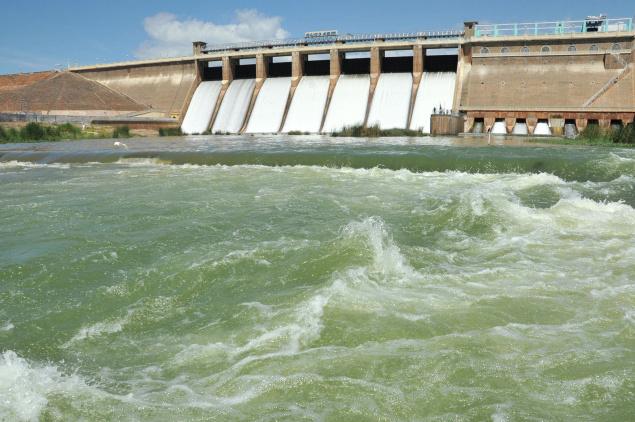 A proliferation of large dams that starve deltas of sediment has contributed to the subsiding of major Indian deltas.
A proliferation of large dams that starve deltas of sediment has contributed to the subsiding of major Indian deltas.
Indian deltas are sinking, and no, it is not because of sea level rise. “Humans are sinking deltas four times faster than the sea level is rising,” says American professor of oceanography and geology at the University of Colorado, James Syvitski.
A proliferation of large dams that starve deltas of sediment, groundwater mining that causes land compaction, and artificial levees that affect river courses, have been responsible for the subsiding of major Indian deltas including Ganga-Brahmaputra, Krishna-Godavari, Brahmani and Mahanadi, Prof. Syvitski demonstrated in his lecture ‘The Peril of Deltas on the Indian Subcontinent: Welcome to the Anthropocene,’ at the International Geosphere-Biosphere Programme held here recently. “The Krishna delta is perhaps the worst off because large dams are preventing almost any of the river’s sediments from reaching it,” he later told The Hindu. In a research paper co-authored by Professor Syvitski and published in Nature Goescience in 2009, satellite imagery and on-ground studies established that the Krishna delta has witnessed a 94 per cent reduction in sediment deposition.
The Godavari, Brahmani and Mahanadi deltas have seen a 40 per cent, 50 percent and 74 per cent reduction, respectively, in sediments delivered to them over the last three decades. “Globally, on average, we have built one large dam everyday for 130 years. Hundreds of gigatonnes of sediments are stored in these global reservoirs,” he said.
And India, which started earlier than even the U.S., has seen a particular proliferation of dams post 1950. “A delta typically should have enough sediment to counter ocean energy. But if you stop bringing in sediment, eventually the ocean will win." The Ganga delta, meanwhile, is sinking at 18 mm a year, even as the sea level rises by 3 mm a year along this coast, spelling a tenuous future for the thousands of people who live and work, he said.
Here, groundwater mining has led to a significant compaction and subsidence of land over the last 15 years. He concurs with the concept of ‘Anthropocene,’ a term suggesting that human impact on the environment has been so large post industrial revolution that this era can be counted as an entirely new geological epoch. And the submergence of deltas is indeed a case in point, he said.
Source: The Hindu, 9 April 2014